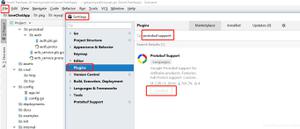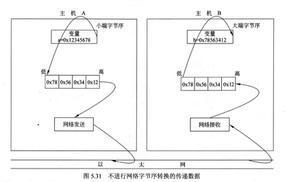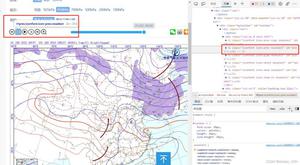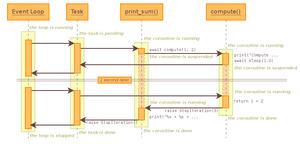栅栏加解密python实现(支持密钥加密)

栅栏加解密是对较短字符串的一种处理方式。给定行数Row,依据字符串长度计算出列数Column,构成一个方阵。
加密过程:就是按列依次从上到下对明文进行排列,然后依照密钥对各行进行打乱。最后以行顺序从左至右进行合并形成密文。
解密过程:将上述过程进行逆推,对每一行依据密钥的顺序回复到原始的方阵的顺序,并从密文回复原始的方阵,最后按列的顺序从上到下从左至右解密。
详细实现例如以下:全部实现封装到一个类RailFence中,初始化时能够指定列数和密钥,默认列数为2,无密钥。初始化函数例如以下:
python"> def __init__(self, row = 2, mask = None):加密过程,能够选择是否去除空白字符。首先是类型检查,列数计算等工作,核心是通过计算的參数得到gird这个二维列表表示的方阵,也是栅栏加密的核心。详细实现例如以下:if row < 2:
raise ValueError(u\'Not acceptable row number or mask value\')
self.Row = row
if mask != None and not isinstance(mask, (types.StringType, types.UnicodeType)):
raise ValueError(u\'Not acceptable mask value\')
self.Mask = mask
self.Length = 0
self.Column = 0
def encrypt(self, src, nowhitespace = False):当中基本的方法是依照列数遍历,每次从明文中取列数个数的字符串保存在遍历 r 中,当中须要处理最后一列的结束下标是否超过字符串长度。if not isinstance(src, (types.StringType, types.UnicodeType)):
raise TypeError(u\'Encryption src text is not string\')
if nowhitespace:
self.NoWhiteSpace = \'\'
for i in src:
if i in string.whitespace: continue
self.NoWhiteSpace += i
else:
self.NoWhiteSpace = src
self.Length = len(self.NoWhiteSpace)
self.Column = int(math.ceil(self.Length / self.Row))
try:
self.__check()
except Exception, msg:
print msg
#get mask order
self.__getOrder()
grid = [[] for i in range(self.Row)]
for c in range(self.Column):
endIndex = (c + 1) * self.Row
if endIndex > self.Length:
endIndex = self.Length
r = self.NoWhiteSpace[c * self.Row : endIndex]
for i,j in enumerate(r):
if self.Mask != None and len(self.Order) > 0:
grid[self.Order[i]].append(j)
else:
grid[i].append(j)
return \'\'.join([\'\'.join(l) for l in grid])
然后将这一列字符串依次依照顺序增加到方阵grid的各列相应位置。
解密过程复杂一些,由于有密钥对顺序的打乱。须要先恢复打乱的各行的顺序。得到之前的方阵之后,再依照列的顺序依次连接字符串得到解密后的字符串。详细实现例如以下:
def decrypt(self, dst):实际执行if not isinstance(dst, (types.StringType, types.UnicodeType)):
raise TypeError(u\'Decryption dst text is not string\')
self.Length = len(dst)
self.Column = int(math.ceil(self.Length / self.Row))
try:
self.__check()
except Exception, msg:
print msg
#get mask order
self.__getOrder()
grid = [[] for i in range(self.Row)]
space = self.Row * self.Column - self.Length
ns = self.Row - space
prevE = 0
for i in range(self.Row):
if self.Mask != None:
s = prevE
O = 0
for x,y in enumerate(self.Order):
if i == y:
O = x
break
if O < ns: e = s + self.Column
else: e = s + (self.Column - 1)
r = dst[s : e]
prevE = e
grid[O] = list(r)
else:
startIndex = 0
endIndex = 0
if i < self.Row - space:
startIndex = i * self.Column
endIndex = startIndex + self.Column
else:
startIndex = ns * self.Column + (i - ns) * (self.Column - 1)
endIndex = startIndex + (self.Column - 1)
r = dst[startIndex:endIndex]
grid[i] = list(r)
res = \'\'
for c in range(self.Column):
for i in range(self.Row):
line = grid[i]
if len(line) == c:
res += \' \'
else:
res += line[c]
return res
測试代码例如以下。以4行加密,密钥为bcaf:
rf = RailFence(4, \'bcaf\')结果例如以下图:e = rf.encrypt(\'the anwser is wctf{C01umnar},if u is a big new,u can help us think more question,tks.\')
print "Encrypt: ",e
print "Decrypt: ", rf.decrypt(e)
说明:这里给出的解密过程是已知加密的列数。假设未知,仅仅须要遍历列数,反复调用解密函数就可以。
完整代码详见这里:https://github.com/OshynSong/web/blob/master/RailFence.py
以上是 栅栏加解密python实现(支持密钥加密) 的全部内容, 来源链接: utcz.com/z/388007.html








